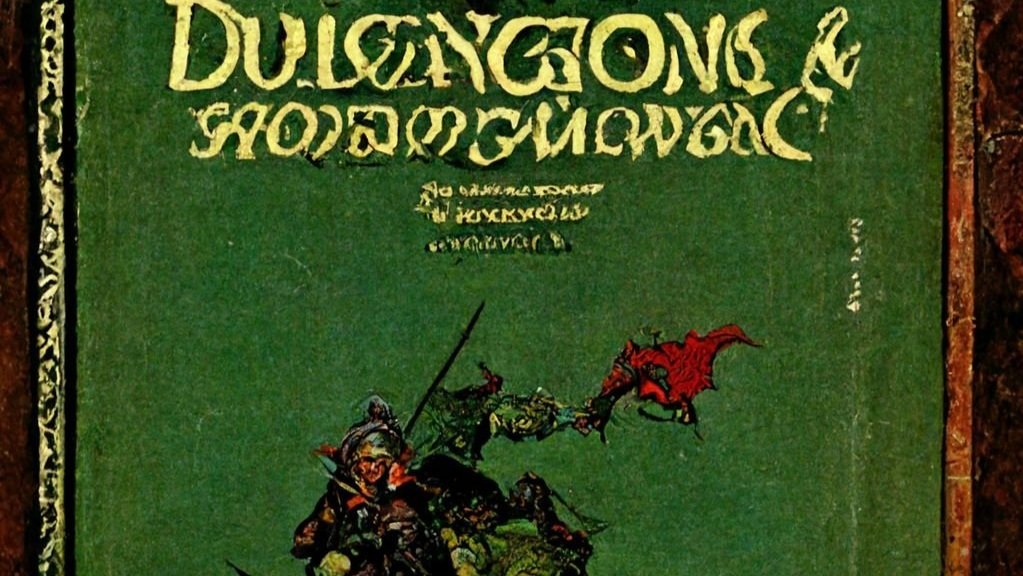You know, I think I need to do a better job of explaining why procedures are important, and how they relate to framing and player choices. This (way, way too long) post is me trying to clarify a couple of things before taking a break from this thread for a while (I've got to actually do some work sometime!).
Let's imagine that an adventuring party is delving into a lich's tomb to recover the Staff of Judgement, for reasons that don't concern us. I'm the DM, running 5e. I have a map of the dungeon, and will describe each room as the party explores it. I put a carrion crawler in one room, the lich in his chamber with the staff, and a big demon on the wandering monsters list. Examples are fictional, but extrapolated from personal experience.
In scenario (a), we use traditional exploration procedures, reaction rolls, supply tracking, the whole works, all imported from Basic or AD&D. Since we're going old-school, there will be no dice fudging.
In scenario (b), I play it by the book: which means, I just kind of wing it, aside from travel speeds and stuff like that, but I do use the keyed map, as the DMG suggests.
In scenario (c), I completely wing it, ignoring the DMG, throwing out the map, and running a linear dungeon like I've seen other people do, using only the stat blocks from the MM as guidance.
When we play (a), the PCs run into the carrion crawler, but my roll says it is asleep in its lair. The party backs up and manages to find a clever path around, then presses on until they find the lich. The fresh party sneaks up on the lich, and launches a clever attack involving holy water and an ersatz trebuchet, which I allow with an improvised ruling. Their ingenuity helps them secure a win (minus one PC, who dies in the fight), and, now low and health and supplies, they grab the staff and make a run for the exit. We're all ready to call it a night, when I roll a random encounter on the way out: the demon! The reaction roll says it is in a bad mood but will not immediately attack; I decide that this means it demands they hand over the staff. The party is
not ready to take this thing on. I guess we end on a cliffhanger!
When we play (b), they PCs also run into the carrion crawler. As far as we know, beast is alert and the party can't outrun it (lots of rules for combat and none for chases mean that no-one thinks to try), so they decide to face it, taking some damage. Then they move on to the lich. The lich fight is exactly the same as in (a), including the holy water trebuchet, except that one of the PCs nearly dies. I feel bad and go easy on them, following the DMG's advice to fudge rolls occasionally. After a tough fight, I feel they've earned some downtime and we're all nearly ready to call it a night, so I decide it's not necessary to check for wandering monsters, following the DMG's advice to use them at my discretion. The party clears the remaining rooms of treasure and leaves.
In scenario (c), I decide the party needs a warm-up fight, so it encounters a quantum carrion crawler and defeats it, taking some damage. Then they say they want to push on and get the staff, so I ad-lib some gloomy dungeon descriptions and we get to the lich. The lich fight goes exactly the same as before; when it comes to the possible character death, I feel bad, since I forced them into a carrion crawler fight they didn't want, so I fudge things a bit. The PCs live happily ever after.
Some points, in no particular order:
- The loss of structure as we move from (a) through (b) to (c) reduces player choice. By the time we hit (c), the only meaningful choices made are how get past enemies/obstacles and whether to continue the adventure.
- Loss of structure increases my power as DM (in theory), but it also makes it difficult and unpleasant to exercise (in practice). Conversely, the high-structure example in (a) sometimes gives me creative prompts (like my ad-lib about the demon wanting the staff).
- The combination of strict exploration rules and players and DM reacting to those rules in (a) leads to situations no-one expected, like the sleeping carrion crawler and the demon's ultimatum. Conversely, (b) and (c) contain no surprises for me as the DM, aside from clever player tactics like the holy water.
- The ad-hoc ruling about the holy water trebuchet is in all three games.
- I am, of course, painting a picture of (a) in which the rules lead to interesting outcomes. Dull rules, a dull adventure, or bad luck might lead to rote boredom, and different people will get differing enjoyment out of different rules. So, it's not just a case of more procedure = better.


